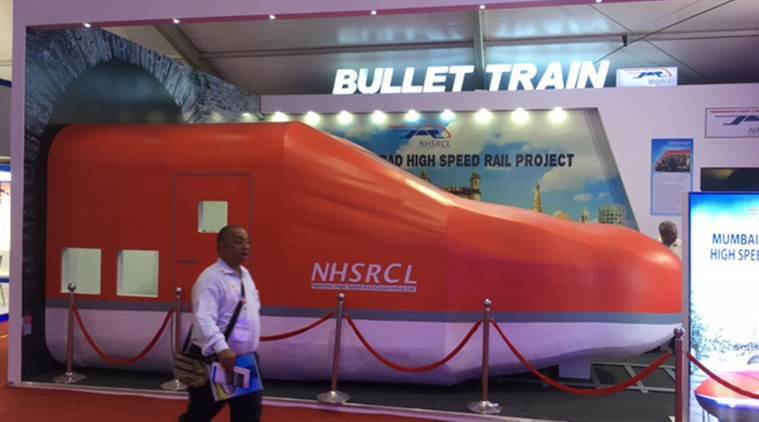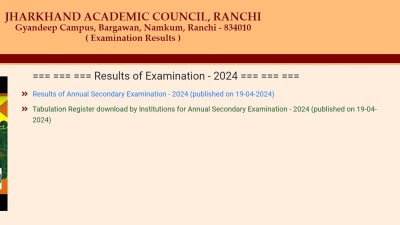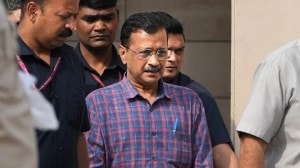- India
- International
Now, a Covid hurdle in bullet train tracks
The Rs 1.1 lakh crore project, the Centre's flagship collaboration with Japan that Chief Minister Uddhav Thackeray had described as a “white elephant”, was announced jointly by Prime Minister Narendra Modi and his Japanese counterpart Shinzo Abe in Tokyo in 2017.
 The Railways set up the National High Speed Rail Corporation Limited (NHSRCL), a special purpose vehicle, to execute the project. (File Photo)
The Railways set up the National High Speed Rail Corporation Limited (NHSRCL), a special purpose vehicle, to execute the project. (File Photo)
The Shiv Sena-led Maha Vikas Aghadi government has a new reason to go slow on the Mumbai-Ahmedabad bullet train project – the Covid-19 pandemic.
The Rs 1.1 lakh crore project, the Centre’s flagship collaboration with Japan that Chief Minister Uddhav Thackeray had described as a “white elephant”, was announced jointly by Prime Minister Narendra Modi and his Japanese counterpart Shinzo Abe in Tokyo in 2017.
Japan International Cooperation Agency (JICA) is funding 80 per cent of the estimated cost of the project – also known as the Mumbai-Ahmedabad High Speed Rail Corridor – through a soft loan. The remaining cost has to be borne by Gujarat and Maharashtra in the form of land acquisitions for the project.
The Railways set up the National High Speed Rail Corporation Limited (NHSRCL), a special purpose vehicle, to execute the project.
With 108 km of the 530-km of corridor in Maharashtra, the state has to acquire 353 of the total 1,400 hectares required for the project in the Dahanu-Palghar-Bhiwandi belt. However, with the people of the area opposing the project, the acquisition process has barely begun.

Even as an alliance partner in the former BJP-led government in Maharashtra, Sena had locked horns with BJP over the project and thrown its weight behind the protesters.
Within days of taking office, Uddhav had announced that all big projects, including the bullet train, would be reviewed in the light of the state’s massive debt and its dire financial straits. In an interview to Sena mouthpiece Saamna in February, Uddhav had described the project as a “white elephant”, asking who the beneficiaries of this project would be, and if it would bring in more trade and industry in Maharashtra.
Now, Covid-19 has provided the government with a ready reason. A senior finance department official said the government had already imposed a 67 per cent cut in expenditure on development schemes for the current financial year due to drastically reduced revenue collection amid the pandemic and the lockdown.
The balance 33 per cent funds are expected to be used only for priority works, the bureaucrat added. The funds that the state would spend on land acquisition for the high-speed corridor have to come out of the allocation to the transport department – the project is being handled by it – which too is included in the two-thirds expenditure cut back.
“The government has taken a decision that projects, in which work is yet to commence, would be stayed for a year now,” state Transport Minister Anil Parab told The Indian Express when asked specifically about the bullet train project.
The government may later review the projects put on hold, a source said. “It will consider the state’s interests in the project and its beneficiaries before taking a decision.”
A May 4 government order on reduction of expenditure, signed by then chief secretary Ajoy Mehta, stated that “all departments have been instructed to review ongoing schemes and the schemes should either be deferred or canceled if possible”.
Union government officials said that while it would be too early to quantify the setback Covid-19 may have caused in the execution of the project, it has “seriously affected” the Centre’s marquee venture, being built with a Rs 88,000 crore soft loan from JICA.
However, JICA itself remains optimistic. “JICA is following up with both governments. At this moment, we have no such idea (of restructuring the financial agreement), so as per the agreement, we will continue to support (the project). There is no immediate impact of Covid-19 at this stage,” said Shinsuke Nagai, senior representative of JICA, India.
“We are in discussions with the Indian and Japanese governments about the cost and the schedule (of the project) but no conclusion has been arrived at yet. No civil work is underway at present except a training facility that is almost finished. Most of the construction is at the bidding stage. The construction will begin, I think, by next year. It will take about six months to one year to sign the contract. After that the construction will start,” said Nagai.
On the ground, however, the delays are already being felt, making the planned roll out in August 2022, to coincide with 75 years of Independence, tough.
In Gujarat, where work on the project had already commenced, the displacement of migrant workers following the lockdown from March 24 has already caused a labour shortage.
Achal Khare, Managing Director of NHSRCL, said, “It is very difficult to forecast anything at this stage but yes, it (pandemic) will have an adverse effect.”
Khare added that NHSRCL had a lot of utility shifting going on in Gujarat prior to the lockdown. “The workers required for utility shifting have gone home so that has been delayed. Also, site clearance work will hold up the work that comes after it, if it is not done on time. There are many issues. It is not possible at this stage to work out what the impact will be but it is going to have quite an adverse effect,” he said.
The works will have be to rescheduled for when more workers are available, he added. “Our immediate concern is to restart all our sites. There are a number of works going in Vadodara, Sabarmati and Ahmedabad.”
Ironically, the project may have more takers in Maharashtra now than before the pandemic. In Palghar district, residents who had refused to make way for the project in 2018, are reconsidering their opposition due to their precarious financial condition, brought on by the lockdown.
In November 2019, Manisha Kadanga (34), a resident of Vargas Pada in Virar (East), had received a notice from the Vasai sub-divisional magistrate for the acquisition of the land she owns on the alignment path of the bullet train corridor. Like many others in her village, she had then declined the offer.
Seven months since, Kadanga and her husband – a daily-wage worker who rented out small huts on their land to provide for their family of five – now find themselves struggling to put food on the table.
“Before the lockdown, we could meet the family’s basic expenses, but now my husband has no work. I have 22 small huts that I have given on rent but since the last three months, I haven’t received one paisa of rent,” said Kadanga.
In Mori village, 10 farmers have agreed to give up their land that is expected to clear about five acres for the project. In Palghar, NHSRCL officials said joint measurement survey had been completed in 71 of the 73 villages.
“As lockdown restrictions are slowly easing up, NHSRCL is set to open all its offices and resume various site works like construction activity, consent camps and utility shifting among others,” said an official.
A senior NHSRCL officer in Palghar said only four hectares had been acquired in the region. “There were protests earlier, but we are now getting more and more consent letters. We are counseling the villagers and they are being offered a fair price,” the officer added.
Apr 19: Latest News
- 01
- 02
- 03
- 04
- 05






































